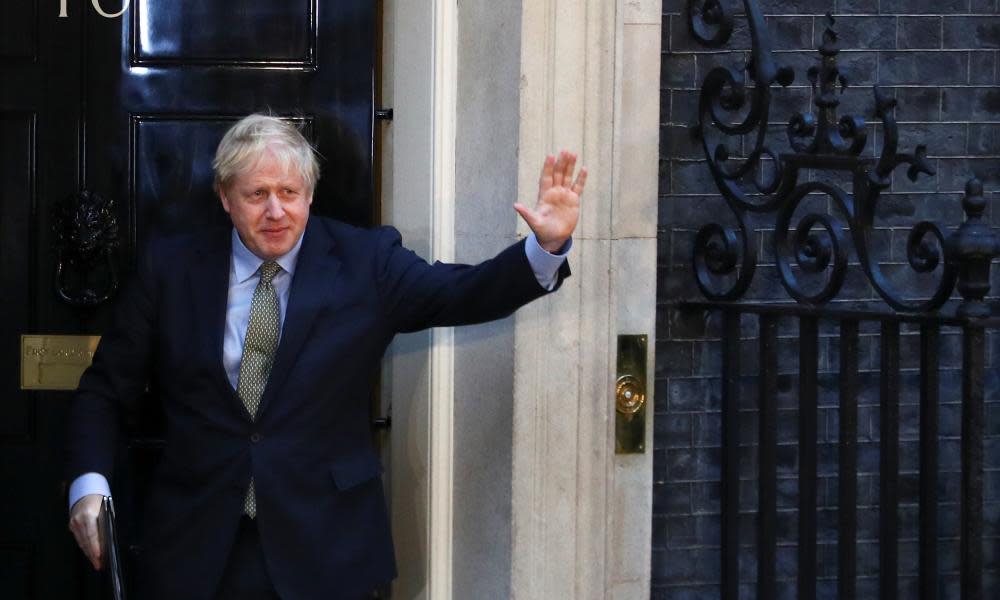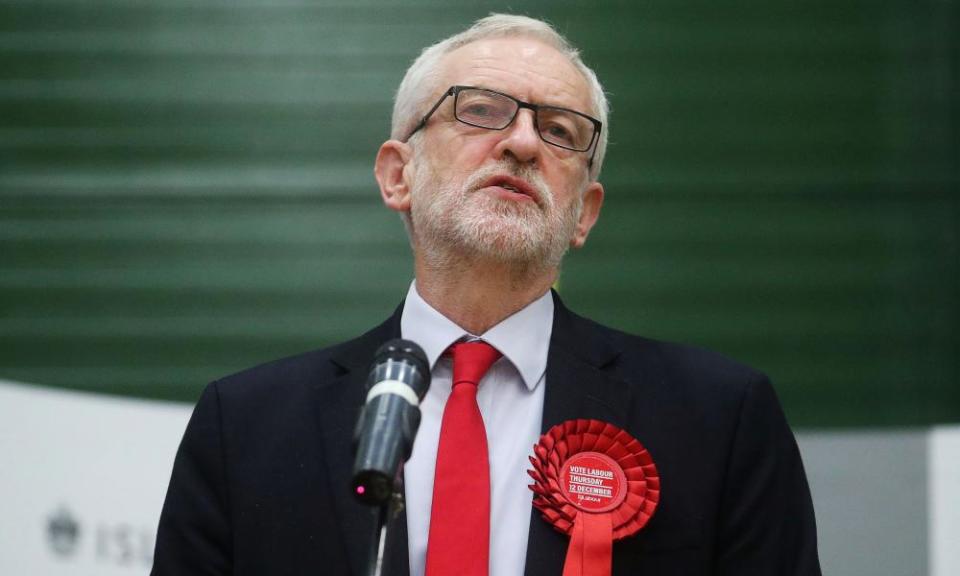Centrists say this is proof Sanders or Warren can't win. They're wrong

The exit polls for the UK general election had barely been published and US pundits were already tweeting out the lessons for next year’s US presidential election. It’s almost as if their conclusions had been reached before the results were known. “Right populism will always beat left populism,” tweeted Yascha Mounk. Perhaps that’s the case, but I don’t know of many elections in which right and left populism were up against each other. And that’s leaving aside whether the Labour leader, Jeremy Corbyn, is a left populist in the first place, which even Mounk admitted is “not obvious”.
Jonathan Chait, a columnist at New York Magazine, published a piece entitled American Leftists Believed Corbyn’s Inevitable Victory Would Be Their Model, which mostly challenged the optimism among the US left following Corbyn’s surprise performance in the 2017 elections. The point of these interventions was obvious: Corbyn’s defeat shows that the Democratic party should not elect a “hard left” candidate, such as Bernie Sanders or Elizabeth Warren, and can only win with a “moderate” candidate such as Joe Biden or Pete Buttigieg. Joe Biden said as much, arguing “this is what happens” when you move “so, so far to the left”.
Related: Labour won’t win again until it works out why it lost | Gary Younge
This could well be true, although I remain unconvinced – especially as the UK elections definitely don’t provide any specific evidence for this conclusion. In many ways, the results were in line with broader trends in Europe, notably that (radicalized) mainstream rightwing parties are quite successful, as, for instance, in Austria and the Netherlands, while social democratic parties are getting hammered virtually everywhere, irrespective of whether they are “moderate” or “radical”.
The idea that British elections are most similar to US elections is based on a simplistic understanding of the two political systems. It is true that both share a first-past-the-post system, with single-member districts, leading to a two-party system, but that is about it. The UK has a parliamentary system and the US a presidential one, which puts much more emphasis on one person and makes the undemocratic electoral college the key decider. Also, smaller parties play a much bigger role in UK elections, as was shown in this election by the crucial role of Nigel Farage’s Brexit party, which handed Boris Johnson the victory by not fielding candidates in almost half of the districts. In the districts that they did contest, Brexit party candidates divided the pro-Brexit vote and thereby handed Labour some important seats.

But most importantly, all elections are still primarily national rather than global. The British election had its own, partly unique, issues and candidates. First and foremost, the election was about Brexit, an issue irrelevant to the US electorate. Also, Corbyn was an extremely controversial candidate. While very popular within the (new) party base, and among millennials, 61% of Brits had a negative opinion of Corbyn, which included particularly older white men, who vote in large numbers. This unpopularity was only partly related to his “hard left” platform; issues such as his weak stance against antisemitism and his non-position on Brexit didn’t help either. To be fair, Johnson isn’t popular either, but he is much less unpopular than Corbyn.
So, which lessons can we draw for next year’s presidential elections? Many, although most are general lessons, not specific to this result.
First, unpopular candidates can win elections – a lesson we should already have drawn in 2016. It doesn’t matter whether a majority of the population dislikes you, but that a majority of the voters likes you. Trump’s base might be small, but it is mobilized and united.
It doesn’t matter whether a majority of the population dislikes you, but that a majority of the voters likes you
Second, internal divisions, over candidates and policies, will harm both support and turnout. While Corbyn has a pretty strong grip on the party membership, which is why he can probably stay on to oversee his own succession, he has been involved in an ongoing and public conflict with much of his parliamentary party. Moreover, the party was internally divided over key issues, most notably Brexit. This all meant that the Labour party contested the elections with an unclear profile. Given the divisions within the Democratic party, and the open animosity between donors and supporters of both “moderate” and “radical” candidates, there is a serious risk that this could harm the Democrats in 2020, too.
Third, the electoral system is key to any successful electoral campaign. Plurality systems are extremely disproportional. In Thursday’s election the Tories got one seat for every 38,304 votes, while Labour needed 50,649 votes for each seat – the numbers for the Liberal Democrats and Greens were 331,226 and 857,513, respectively. Moreover, Corbyn’s “dramatic” result last night was only 3% lower than the 35.2% that won Tony Blair his third election in 2005. The US system is even less democratic, given that the electoral college trumps the popular vote.
Fourth, and most importantly, campaigns matter. Yes, Labour had fantastic short videos, and an incredibly detailed and elaborate election manifesto, but its campaign missed a clear focus and target – obviously, in large part because Corbyn was unwilling to take a clear position on the key issue of the election. In sharp contrast, the Tories had a clear message (“Vote to deliver Brexit; vote to respect the referendum”), however problematic in reality, and spent much of their money on Facebook in the last week of the campaign, when many voters decide whether and who to vote. The Trump campaign has been spending millions of dollars on Facebook for the last year, pushing a very similar message – in the language of its leader, “DEMOCRATS WANT TO STEAL THE ELECTION”.
What this all means is that Democrats should put much less trust in general polls, as in a highly polarized country like the US average levels of public support do not necessarily tell us much about who will win the presidency. What matters is who shows up. Republican voters know who and what they will show up for. Do Democratic voters?
Cas Mudde is a Guardian US columnist and the Stanley Wade Shelton UGAF Professor in the School of Public and International Affairs at the University of Georgia

